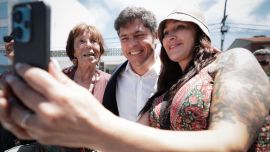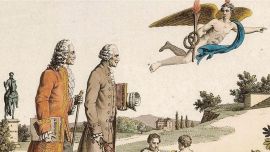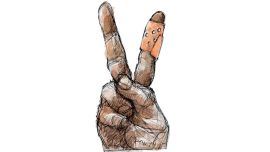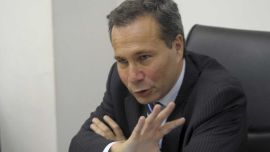As restrictions on access to dollars take effect in Argentina, the sign of long bank queues outside branches of financial institutions have once again become a common sight in Buenos Aires.
The government introduced capital controls on Monday as it tries to control a rapid loss of foreign reserves and an accelerating devalution of the currency,
The measures say residents can't buy more than US$10,000 a month without permission from the Central Bank. Institutions need permission for lesser sums. It also says that dollars earned for exports should be brought into the company within five days of the time they are paid. Importers also need permission to make payments. It also bars people from buying dollars to pay domestic debts.
The measures are far less restrictive than those imposed by the government of former president Cristina Fernández de Kirchner, which restricted even spending on vacations abroad and taxed credit card transactions in dollars, leading to the rise of a currency black market.
But they still alarmed many Argentines who recall past crises, and lines formed outside several banks in the capital.
President Mauricio Macri's government imposed the measures after a first stage of voting showed the Peronist presidential candidate Alberto Fernández far ahead of the conservative incumbent, scaring many investors and sending the country's currency and stock market plunging.
The peso has lost between 25 and 30 percent of its value since the August 11 vote. The election is due to take place on October 27.
Treasury Minister Hernán Lacunza told reporters Monday the measures are 'uncomfortable" and "emergency measures to avoid greater evils and not increase poverty."
Stabilise
Argentine stocks closed 6.45 percent higher on Monday after currency controls were imposed in an effort to stabilize a deepening financial crisis. The peso also closed 5.38 percent higher to trade at 58.41 to the dollar.
"I believe that the dollar will be stable. It has dropped 2.5 pesos, but with very little volume" of transactions, Lacunza said on Monday.
However, the full effects of the measures remain difficult to quantify before the reopening of the US market on Tuesday following the Labour Day holiday.
"This being the holiday Monday in the United States, the bond market or ADR [Argentine shares on Wall St.] do not operate. We should see the serious reaction as of Tuesday," said economist Héctor Rubini of Salvador University in Buenos Aires.
Despite government assurances that individual savers would not be affected by the measures, lines formed outside banks Monday in Buenos Aires, where memories are still fresh of people being blocked from withdrawing their money during the country's worst economic crisis, in 2001.
In a move to reassure savers, the government issued a statement insisting there would be no limit to withdrawals and asked that banks extend their opening hours.
The decree published Sunday said the currency measures were needed temporarily to "regulate more intensely the currency exchange regime and strengthen the normal functioning of the economy."
Under the "extraordinary measures," transferring money abroad will now require government permission. And individuals seeking to buy dollars now face a monthly limit of 10,000 greenbacks.
All these new measures will be in place until December 31.
The capital controls "may, in the short term, help to stem capital flight and slow the pace of FX reserve depletion," said Capital Economics in a note.
"But their imposition might make it easier for a future left-wing government (which is likely after October’s election) to justify using them over the long term. That would result in persistent strains in the balance of payments."
– TIMES/AP/AFP























Comments